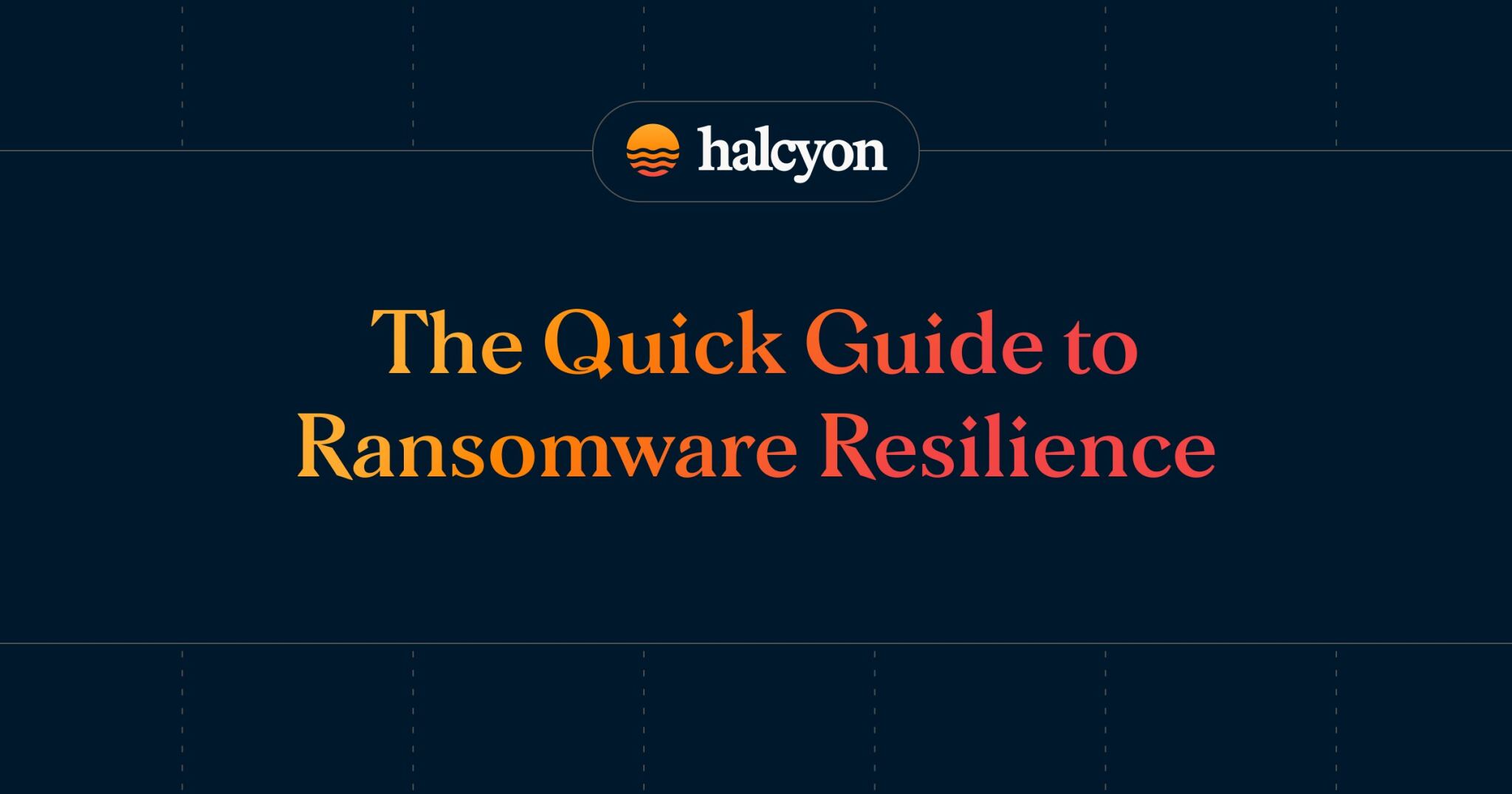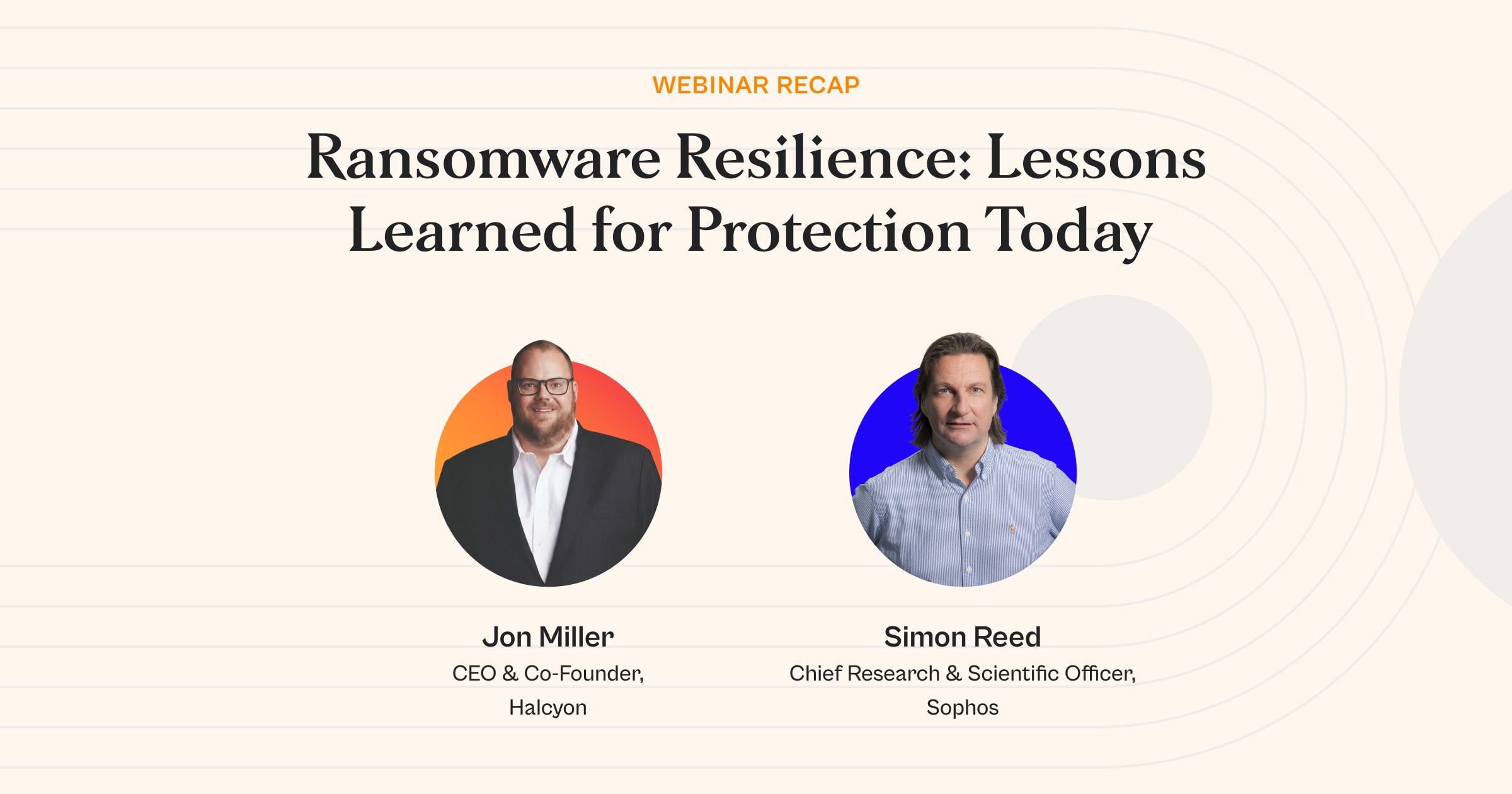Whitepaper: What CPOs Should Know about Ransomware
.jpg)
.jpg)
In 2023, the volume of ransomware incidents increased by 55.5% compared to the previous year, with 4,368 documented cases—a number that only scratches the surface as many attacks go unreported.
Unlike other forms of malware, ransomware's primary goal is to cause disruption rather than evade detection. However, many current cybersecurity investments fail to adequately address the specific challenges posed by ransomware.
Ransomware is no longer a niche threat; it has become one of the most dangerous risks facing any organization today. In fact, 75% of businesses reported being targeted by at least one ransomware attack in 2023, and 26% of them faced four or more attacks in the same year.
While today's endpoint protection solutions are effective against many threats, they fall short in defending against ransomware, as they are primarily designed to detect and block more generic forms of malware.
Ransomware-as-a-Service (RaaS) operators and data extortion groups are increasingly employing sophisticated evasion techniques that can bypass traditional endpoint defenses entirely.
As a business leader, it is imperative to understand the disruptive potential of ransomware and take proactive measures to mitigate its impact on your organization. In this guide, we will outline key insights that every C-level executive should know to maintain a strong security posture and protect against ransomware threats:
The role of a CPO (Chief Privacy Officer) in addressing company culture as it relates to ransomware threats is significant, as they are responsible for ensuring the protection and privacy of the organization's sensitive data.
Here are several ways a CPO can address company culture in the context of ransomware threats:
- Develop and enforce data privacy policies: A CPO should develop and enforce data privacy policies that address the potential risks associated with ransomware attacks. These policies should outline the proper handling, storage, and disposal of sensitive data, as well as the steps to be taken in the event of a data breach resulting from a ransomware attack. Regularly reviewing and updating these policies is essential to ensure they remain effective and compliant with evolving privacy regulations.
- Promote a culture of data privacy awareness: A CPO should actively promote a culture of data privacy awareness throughout the organization. This involves emphasizing the importance of protecting sensitive data from unauthorized access, both in the context of ransomware attacks and more broadly. By prioritizing data privacy, employees will be more likely to adopt secure practices and take their role in preventing data breaches seriously.
- Support employee training and awareness initiatives: A CPO should allocate resources and support employee training and awareness initiatives related to ransomware threats and data privacy best practices. This involves providing employees with guidelines and best practices for handling sensitive data, identifying and avoiding phishing emails, and reporting any suspicious activity. Regular training and awareness programs can help employees recognize and respond to ransomware threats and data breaches more effectively.
- Collaborate with other C-level executives: A CPO should collaborate closely with other C-level executives, including the CEO, CFO, CIO, and CISO, to ensure a coordinated approach to addressing ransomware threats and data privacy concerns. By working together, these executives can develop comprehensive strategies that balance data protection, risk management, and operational efficiency.
- Monitor compliance with data privacy regulations: A CPO should regularly monitor the organization's compliance with data privacy regulations, such as the GDPR or CCPA, and address any gaps or weaknesses that could increase the risk of a data breach resulting from a ransomware attack. This may involve updating internal processes, implementing new technologies, or working with legal and compliance teams to ensure the organization remains compliant with applicable privacy laws.
- Establish an incident response plan for data breaches: A CPO should lead the development of an incident response plan that specifically addresses data breaches resulting from ransomware attacks. This plan should outline the roles and responsibilities of various stakeholders, establish clear communication channels and escalation paths, and detail the steps to be taken in the event of a breach. Regular testing and updating of the incident response plan are essential to ensure its effectiveness in a real-world scenario.
Takeaway
Ransomware attacks present a serious risk to organizations across all sizes and industries, making it essential for CPOs to adopt a proactive and collaborative approach to identifying and mitigating these threats.
By promoting a strong cybersecurity culture, investing in appropriate technologies and skilled personnel, and creating thorough incident response and business continuity plans, organizations can significantly reduce the impact of ransomware attacks and strengthen their security posture.
By addressing the specific challenges that ransomware poses, CPOs can collaborate with other leadership to safeguard their organizations and uphold the trust of both customers and employees.
Halcyon.ai is the leading anti-ransomware company. Global 2000 companies rely on the Halcyon platform to defeat ransomware with minimal business disruption through built-in bypass and evasion protection, key material capture, automated decryption, and data exfiltration and extortion prevention – talk to a Halcyon expert today to find out more. Halcyon also publishes a quarterly RaaS (Ransomware as a Service) and extortion group reference guide, Power Rankings: Ransomware Malicious Quartile, and check out the Recent Ransomware Attacks resource site.
Related Posts
See Halcyon in action
Interested in getting a demo?
Fill out the form to meet with a Halcyon Anti-Ransomware Expert!





